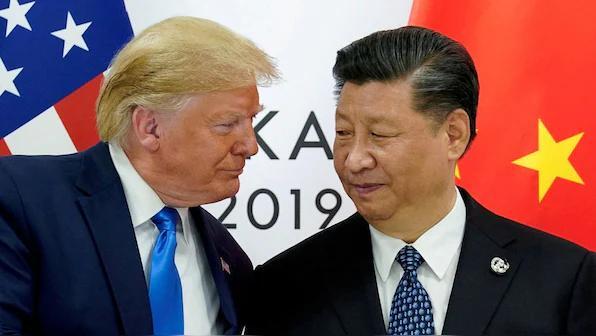
China Refuses to Join Denuclearisation Talks with US & Russia
In a move that has sent shockwaves across the global diplomatic community, China has flatly refused to join trilateral denuclearisation talks with the United States and Russia. The decision comes as a response to US President Donald Trump’s recent call to include Beijing in future negotiations aimed at reducing the threat of nuclear weapons.
According to a report by Moneycontrol, Chinese Foreign Ministry Spokesperson Guo Jiakun made the announcement on Wednesday, stating that the expectation of China’s participation in such talks was “neither reasonable nor realistic.” Guo’s comments were in response to Trump’s earlier suggestion that China should join the denuclearisation talks, which would involve the three world powers engaging in a dialogue aimed at reducing their nuclear arsenals.
The Chinese spokesperson’s statement was clear and unequivocal: “China and the US are not at the same level at all in terms of nuclear capabilities. The expectation that China should participate in trilateral denuclearisation talks is neither reasonable nor realistic.”
This decision by China has significant implications for the global nuclear landscape. The United States and Russia have been engaged in talks aimed at reducing their nuclear stockpiles for several years, with both countries agreeing to certain reductions in their arsenals. However, the inclusion of China in these talks would have added a new layer of complexity to the negotiations, given the significant differences in the nuclear capabilities of the three countries.
China has long been a nuclear-armed nation, with an estimated arsenal of around 280 nuclear warheads. In contrast, the United States and Russia possess thousands of nuclear warheads each, with the US having an estimated 3,800 warheads and Russia having around 3,500 warheads.
The refusal of China to join the denuclearisation talks is seen as a significant setback for the US and Russia, which had been pushing for Beijing’s involvement in the talks. The US had been hoping to use China’s participation to pressure North Korea to dismantle its nuclear programme, which has been a major source of tension in the region.
However, China’s reluctance to join the talks is not surprising, given its long-standing position on the issue. Beijing has consistently maintained that its nuclear programme is purely defensive in nature and that it will not negotiate on its nuclear capabilities.
The decision by China to refuse participation in the denuclearisation talks is also seen as a reflection of the complex and often fraught relationship between Beijing and Washington. The two countries have been locked in a trade war for several months, with both sides imposing tariffs on each other’s goods.
The refusal of China to join the denuclearisation talks also highlights the significant differences in the nuclear capabilities of the three countries. While the US and Russia have been engaged in talks aimed at reducing their nuclear stockpiles, China has been reluctant to participate in such talks, given its smaller nuclear arsenal.
In conclusion, China’s refusal to join denuclearisation talks with the US and Russia is a significant development in the global nuclear landscape. The decision reflects the complex and often fraught relationship between Beijing and Washington, as well as the significant differences in the nuclear capabilities of the three countries. While the US and Russia had been pushing for Beijing’s involvement in the talks, China’s reluctance to participate is unlikely to change in the near future.



